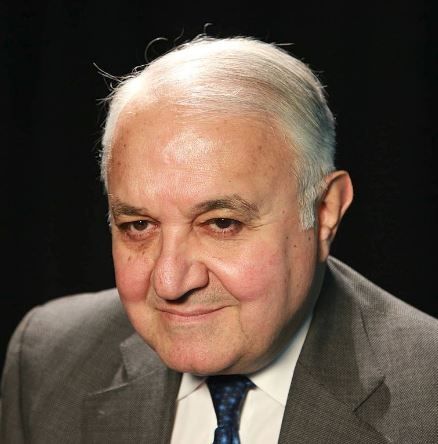By Mehrdad Khonsari
Brian Hook, the U.S.’s Special Representative for Iran recently released a video message for the Iranian people filmed outside what used to be the Iranian Embassy in Washington. For me, the video was also a sad reminder of happier days when I had taken my first steps as a young political intern while still a student at Georgetown University, in what later became an unfulfilled diplomatic career.
To see that building restored to its former glory and occupied once again by self-respecting Iranians committed to a policy of friendship and mutual respect with the U.S. is also a lifetime goal and ambition for me.
However as someone who has been an ardent critic of the Islamic Republic for almost 40 years, I took no solace from the tone adopted by Mr. Hook’s insinuations, which is part and parcel of Washington’s overall hostile attitude towards my country. As it happens I am part of a dwindling segment of our population that has been around long enough to have seen the overall benefits derived from the trust and friendship we had cultivated with the U.S. for more than a century prior to the advent of the Islamic Revolution in 1979.
Contrary to the kind of propaganda generated by self serving revolutionary elements in 1979, I have always been a strong advocate for the restoration of diplomatic ties, even in an atmosphere of huge disagreement, and like Mr. Hook, I am also hopeful that our premises in Washington may some day soon be occupied by a new generation of Iranian diplomats who are as much committed to making Iran great again as I have been throughout my life.
Nonetheless, even the symbolic use of Iran’s former embassy in Washington failed to conceal the thrust of Mr. Hook’s somewhat disingenuous message, which in a softer tone, indirectly replicates the same rhetoric as that used recently by Vice President Pence in Warsaw and Munich. Indeed, they have both been impervious to the kind of damaging experiences that have seriously scarred relations between our two nations in the course of the past 40 years.
In the case of Iran, the Islamic Republic’s persistent anti-American policies and sloganeering have brought nothing but harm in every respect to my country. By having breached international law and acceptable norms of international conduct – something that must be accepted and put right, Iran has over the years been forced into a situation where the future well-being and deserved expectations of its citizens have been gravely frustrated. In an economic environment where the Iranian currency is worth less than 2000 times that of its value in 1979, there are clear signs today that a great majority of all Iranians dedicated to securing a better and more prosperous future are bent on reversing policies that have brought them nothing but social hardship and economic deprivation. The suffering people of Iran do not need anyone’s crocodile tears to remind them of their own circumstances and the need for some kind of change that does not compound their miseries.
For its part, in dealing with Iran and the region, the U.S. has not fared much better. Direct military intervention or waged proxy wars in places like Lebanon, Afghanistan, Iraq, Yemen and Syria have hardly contributed to either rooting out Islamic militancy or promoting greater stability and better governance. American action by withdrawing from the JCPOA – a slap in the face of all moderates in Iran trying to redirect Iranian foreign policy and reintegrate Iran into the community of nations – is as much in breach of international law and UN Security Council decisions as Iran’s previous violations of the Vienna Convention on diplomatic relations.
Moreover, by re-imposing various punitive measures, the U.S. has seriously aggravated the lives of ordinary Iranians – from people wishing to travel to the U.S. in order to study, visit relations or receive medical attention to those confronted by the daily difficulties and hardships forced on them by harsh and biting economic sanctions.
This behavior is such a contrast to the kind of ethos and values that I was taught as a young man when I attended various schools in the U.S.

Neglectful of the underlying reason for their own policy failures of the last 20 years in the Middle East, the thrust of Mr. Hook’s message – taken in stride with the kind of tensions being contrived by an unholy alliance between various U.S. allies in the region – is in simple terms an irresponsible attempt to provoke rebellion without any consideration to a variety of chaotic scenarios that could follow like those already witnessed in places like Libya and Syria.
In an international atmosphere where populist policies and soft fascism even in western democratic societies seems to be gaining ground, resorting to ‘public diplomacy’ ploys of this nature simply leaves a bad taste in the mouth of any self respecting Iranian who does not wish to see a disastrous replay of Afghanistan or Iraq in their homeland.
This is not to say that the status quo in Iran should be retained. Peaceful change is critical for the future well-being of the Iranian nation. However, this transition must be championed through dialogue and reconciliation amongst competing political factions as well as Iran’s future partners in the international arena.
Mr. Hook and his superiors would be better served to encourage peaceful avenues such as dialogue and national reconciliation – as difficult and time consuming as they may be – rather than promoting a policy of political and economic intimidation. Only in this way can the ultimate outcome sought by all regional and international players as well as the overwhelming majority of people in Iran be achieved.
Dr. Mehrdad Khonsari is a former Iranian diplomat and a Senior Consultant at the ‘Iranian Centre for Policy Studies’.

